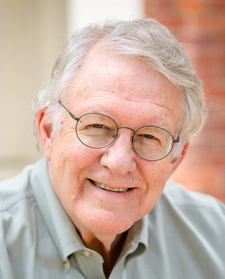Printed in the Spring 2023 issue of Quest magazine.
Citation: Keene, Douglas, "Seeking Evidence" Quest 111:2, pg 9
By Douglas Keene
 When contemplating the divine, whether personal or impersonal, some see evidence everywhere, and others cannot. This depends, of course, on the nature and quality of such evidence. To some, a field of blooming lavender, a blazing sunrise, or an exploding nebula is all that is needed to inspire and help them know that we are not alone. Others want measurable, material, and irrefutable proof in the divine before acknowledging it.
When contemplating the divine, whether personal or impersonal, some see evidence everywhere, and others cannot. This depends, of course, on the nature and quality of such evidence. To some, a field of blooming lavender, a blazing sunrise, or an exploding nebula is all that is needed to inspire and help them know that we are not alone. Others want measurable, material, and irrefutable proof in the divine before acknowledging it.
Historically, the role of an Almighty Being has served different purposes. One was to explain the unexplained. Eclipses, weather events, wars, plagues, and even personal prosperity or penury were attributed to “the will of God.” A pantheon of gods evolved that were worshiped by the Hindus, Greeks, and Romans. The birth of Christianity led to the spread of monotheism, but there was still a plethora of saints to help with day-to-day concerns.
In 1768, Voltaire famously wrote, “Si Dieu n’existait pas, il faudrait l’inventer” (“If God did not exist, it would be necessary to invent him”). But is this as true in the twenty-first century as it was in the eighteenth? As science has advanced, it has explained many of our progenitors’ perplexities, but in doing so, it has raised a myriad of new questions and challenges.
Nevertheless, with this accumulated knowledge, many have drifted to a more secular understanding of the universe. Neil deGrasse Tyson, the American astrophysicist, pointed out in a 2011 talk that roughly 90 percent of the general public believe in a personal God. This number drops to 60 percent among those with postgraduate college degrees, then to 40 percent for those with degrees in science, and finally to 7 percent of those considered “elite” scientists: members of the National Academy of Sciences.
This correlation is quite curious, as it implies that the more we know about physical existence, the less we believe in (at least a personal) God. This suggests a competition of these two worldviews rather than a melding. Is there any reason that being able to calculate the orbits of the planets and measure the distance of the stars should render their creation and placement any less miraculous? Does splitting the atom into quanta cause it to be any less mind-boggling? Is life after death any more difficult to comprehend than life before death?
Another role of faith in a divine presence is the word of God, which is in part instruction in moral development, presumably leading to eternal life. Undoubtedly, this has uplifted and given hope to millions of devotees, but is it essential in the modern world? In his book Beyond Religion: Ethics for a Whole World, the Dalai Lama has written, “What we need today is an approach to ethics which makes no recourse to religion and can be equally acceptable to those with faith and those without: a secular ethics” (Dalai Lama, 5). He makes a strong argument that if all people live by the highest ethical principles, whether within religious structures or outside of them, many aspects of our lives will improve, regardless of national or political affiliation. Respect, compassion, charity, unity, and humanity are not the province of any one tradition.
There are those who have had direct spiritual experiences (or believe they have) through revelation, clairvoyance, astral projection, near-death experience, and other nonphysical phenomena. Although some instances may have other explanations, they usually lead the experiencer to a deep conviction that an alternative reality exists. Frequently, the fear of physical death dissolves as the body is seen as a mere cloak for a limited time in a specific incarnation. Theosophy regards dreams as excursions into other realms that we will one day experience more fully. Deep meditation allows some to see behind the veil of illusion of sensed physical solidity. Yogis appear to defy laws of physiology, time, and space.
We should remember that the lack of evidence for a divine hierarchy (if one chooses this belief) does not in any way constitute evidence against it. Love cannot be measured by a yardstick, and empathy does not show up on a chest X-ray. Yet who would deny their existence? It might be helpful here to recall the words of Mabel Collins in her book The Idyll of the White Lotus: “The principle which gives life dwells in us, and without us, is undying and eternally beneficent, is not heard or seen or smelt, but is perceived by the man who desires perception” (Collins, chapter 8).
Sources
Collins, Mabel. Idyll of the White Lotus. London: Theosophical Publishing Society, 1885.
The Dalai Lama XIV. Beyond Religion: Ethics for a Whole World. Boston: Houghton Mifflin Harcourt, 2011.
Tyson, Neil deGrasse. “Religion versus Science: Can the Two Coexist?” Lecture, YouTube, 2011.
Voltaire. “Epître à l’auteur du livre des Trois imposteurs” (“Epistle to the Author of Three Impostors”). Voltaire Society in America website.
Douglas Keene, vice president of the Theosophical Society in America, has been a member since 1980, first joining in San Antonio, Texas, while in medical school. He has served for several years on the TSA board of directors, initially as eastern director. Doug has presented at a number of lodges in the eastern U.S. as well as at the Ojai Valley TS Lodge and at the Summer National Convention. A practicing doctor for over thirty-three years, he is currently the medical director at an extended care facility and lives with his wife, Risa, in New Hampshire.

